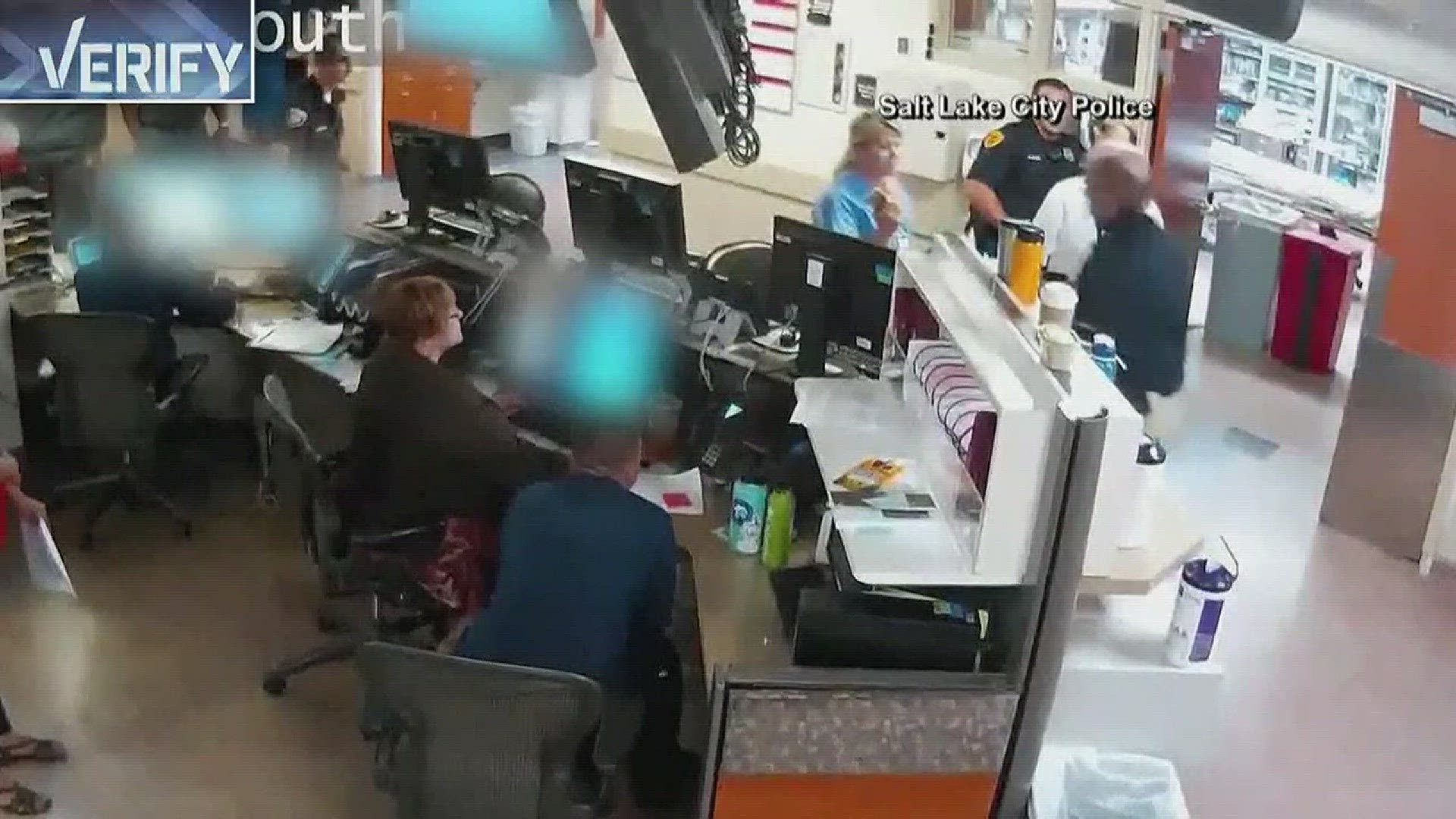PHOENIX -- "We're done!”
A Salt Lake City police officer is heard saying those two simple words, which ironically started it all.
Alex Wubbels, a nurse in Utah, was seconds away from being put into handcuffs after a shocking scuffle caught on camera.
Back in July, she told Det. Jeff Payne she wouldn't give him a patient's blood, and the body camera footage of the interaction from the department has just surfaced.
"I just feel betrayed," Wubbles said with tears running down her cheeks.
The police department quickly released Wubbles after the encounter, but she says she is still so confused.
"The only job I have as a nurse is to keep my patients safe,” she said.
Utah's laws prevent officers from seizing blood without a warrant from a patient who, in this case, was the unconscious victim of a crash.
What about in Arizona?
"The justice system [may need] this blood, but she has an obligation to the patient,” said Aliria Muñoz Rascón, RN, a professor with Arizona State University’s School of Nursing and Health Innovation.
She said one of the components of the classes she teaches is ethics.
"Some of these concepts start to butt up against each other, and that's when we have ethical dilemmas,” said Muñoz Rascón.
Following ethics is one thing; following the law is another.
In Arizona, we have an implied consent law, which is currently being battled in court.
Essentially, simply by having a driver’s license, you give automatic permission if you're suspected of a DUI.
However, we also verified with Scottsdale DUI attorney Craig Rosenstein that you can still deny consent, but it may worsen your consequence of a suspended license from 90 days to one year.
In a hospital setting, investigators must get your permission -- otherwise they require a warrant.
"[Drawing blood] just gets thrown around like it's some simple thing, but blood is your blood,” said Wubbles. “That's your property."

